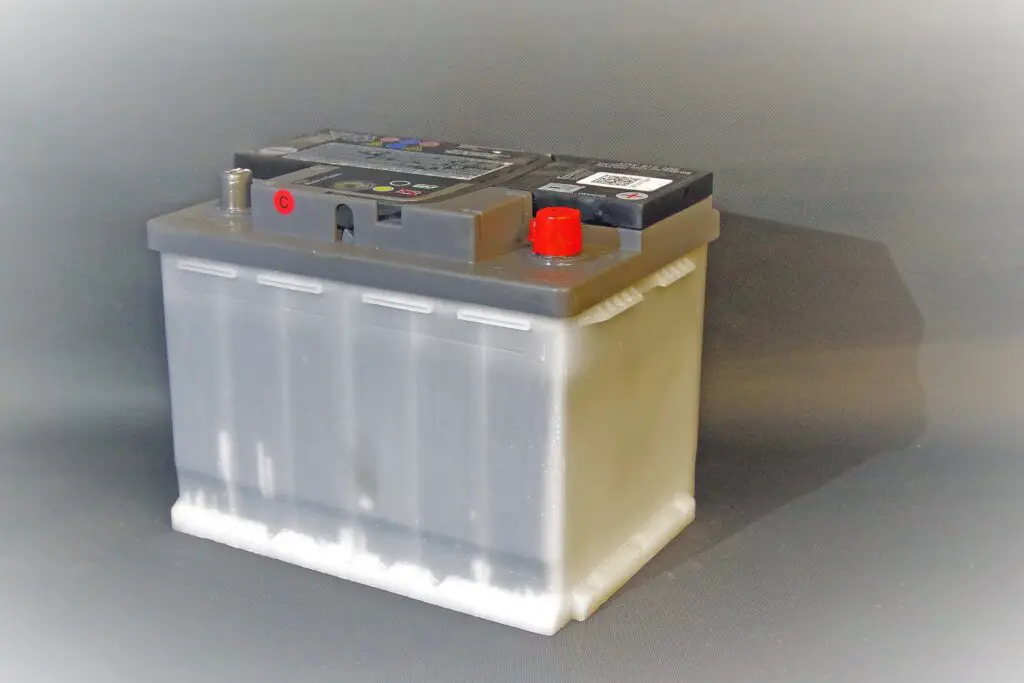A car battery is a crucial component of your vehicle, powering everything from the starter motor to the lights and onboard electronics. However, when a car sits unused for an extended period, the battery’s charge can drain, potentially leaving you stranded when you need it most.
So, how long can a car battery sit unused before it becomes a problem? Let’s explore the factors that influence battery life and how to keep it in good condition.
Typical Lifespan of an Unused Car Battery
A car battery can typically sit unused for about four weeks to two months before it becomes too weak to start the engine. However, the exact timeframe depends on several factors, including the battery’s age, condition, and the environment in which it’s stored.
Factors Affecting Battery Lifespan While Unused
- Battery Age:
- Newer batteries tend to hold a charge longer than older ones. A battery nearing the end of its lifespan (usually 3-5 years) will discharge more quickly.
- Parasitic Drain:
- Even when the car is off, small amounts of energy are used to maintain systems like the clock, alarm, and onboard computers. This constant drain can weaken the battery over time.
- Temperature:
- Extreme temperatures accelerate battery discharge. Heat increases chemical activity inside the battery, leading to faster depletion, while cold reduces its capacity to deliver power.
- Battery Type:
- Standard lead-acid batteries discharge faster than advanced options like Absorbent Glass Mat (AGM) or lithium-ion batteries, which are more resistant to self-discharge.

Signs Your Battery Is Weak After Sitting Idle
If your car has been unused for some time, watch for these signs of a weak battery:
- Slow Engine Crank: The engine takes longer than usual to start.
- Dim Lights: Headlights and interior lights may appear less bright.
- Dashboard Warning Lights: A battery warning light may illuminate.
- Clicking Sounds: You may hear a clicking noise when you turn the key, indicating insufficient power to start the engine.
Tips to Extend Battery Life During Inactivity
If your car will be sitting unused for an extended period, follow these steps to preserve the battery:
1. Disconnect the Battery
- Disconnecting the negative terminal reduces parasitic drain from the car’s systems. However, this may reset some electronics like the clock or radio presets.
2. Use a Trickle Charger or Battery Maintainer
- A trickle charger provides a low, steady charge to keep the battery topped up without overcharging. This is especially useful for long-term storage.
3. Start the Car Regularly
- Start your car and let it run for about 15-20 minutes every two weeks to recharge the battery and circulate engine fluids.
4. Store in a Temperature-Controlled Environment
- Keep the car in a garage to protect the battery from extreme temperatures.
5. Check Voltage Periodically
- Use a multimeter to monitor the battery’s voltage. A healthy battery should read around 12.6 volts when fully charged.
When to Replace a Car Battery
Even with proper care, a battery’s lifespan is finite. Replace your battery if:
- It’s older than 3-5 years.
- It struggles to hold a charge, even with regular maintenance.
- It shows signs of physical damage like cracks or corrosion.
Final Thoughts
A car battery can sit unused for several weeks to a couple of months, but its longevity depends on factors like age, environmental conditions, and parasitic drain. By taking proactive steps, such as using a trickle charger or disconnecting the battery, you can ensure it remains in good condition during periods of inactivity.
Planning to leave your car unused for a long time? Follow these tips to avoid unexpected battery troubles and keep your vehicle ready to go when you need it most. Have additional questions about car battery care? Let us know—we’re here to help!
Discover more from Chikwem
Subscribe to get the latest posts sent to your email.